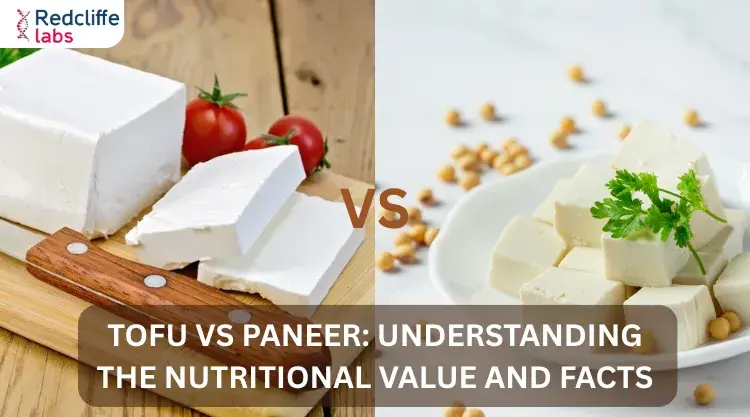Healthy Diet Chart For Weight Loss

Medically Reviewed By
Dr. Ragiinii Sharma
Written By Muskan Taneja
on Jul 19, 2024
Last Edit Made By Muskan Taneja
on Jul 19, 2025

According to the National Family Health Survey, one in every four Indians is Obese.
This situation is concerning, and the reason is appropriate: our lifestyle and diet.
Do you know?
A person living in a rural area needs 2400 kcal/day, while one living in an urban area needs 2100 kcal/day. However, they must meet the criteria.
This imbalance in the diet leads to weight gain. Weight gain brings diabetes, high BP, high cholesterol, heart or liver disease, and cancer (in some cases).
Understanding a Healthy Diet Chart
A healthy diet chart includes a list of foods with their nutritional values to help maintain good health. The chart is different for both males and females. It includes nutritional foods such as fruits, vegetables, lentils, protein, whole grains, and healthy fats. The diet chart helps one understand the right proportion of food consumption.
There are several myths about diet plans, but keeping them aside, a diet chart can be healthy, tasty, and nutritious. Following a healthy diet chart can prevent long-term illness, control weight, build strong muscles, and maintain energy.
Also read: https://redcliffelabs.com/myhealth/food-creative/typhoid-diet-chart-food-to-eat-and-avoid/
Daily Healthy Diet Chart For Weight Loss
You might think a diet chart is boring, full of fruits & green leafy vegetables. But, it is not true. Follow this seven-day tasty diet chart for weight loss.
|
Day |
Breakfast (8:00- 8:30 AM) |
Mid-Meal (11:00- 11:30 AM) |
Lunch (2:00- 2:30 PM) |
Evening Snack (4:00- 4:30 PM) |
Dinner (8:00- 8:30 PM) |
|
Monday |
One bowl of Poha + 1 glass of milk |
Handful amount of nut or seed |
1 bowl of brown rice with dal + salad + 1 bowl Bhindi |
1 Apple + 1 cup of green tea/ black coffee |
Two chapatis + 1 bowl of Jeera Aloo |
|
Tuesday |
Omelette with two brown bread + one glass of milk |
1 bowl fruit salad + 1 glass coconut water |
1 bowl rajma + 1 bowl aloo gobhi + 1 bowl rice + 1 chapatti + 1 bowl cucumber raita |
1 cup tea/ coffee + 1 cup papri chaat |
1 bowl lauki kofta + 2 chapati |
|
Wednesday |
Namkeen Dalia + 1 apple |
One glass of fruit smoothie |
1 bowl paneer curry + 1 bowl boiled rice + 2 chapatti + salad |
1 cup tea/ coffee + 1 cup aloo chaat |
1 bowl matar & mushroom curry + 2 chapati |
|
Thursday |
Moong dal Cheela + 1 glass of milk |
One bowl yogurt |
1 bowl palak paneer + 1 bowl rice + 1 chapatti + salad |
1 cup tea/coffee + 1 cup boiled chana chat |
One bowl bottle of gourd curry + 2 chapati |
|
Friday |
1 bowl of oats + 1 glass of milk |
One glass of coconut water |
1 bowl paneer curry + 1 bowl dal + 1 bowl rice + salad |
1 cup mur-more chat + 1 cup tea/coffee |
1 bowl mustard greens + 2 chapati |
|
Saturday |
Veggie stuffed omelet + 1 glass of milk |
Handful amount of seeds or nut |
1 bowl boiled rice + 2 chapatti + 1 bowl dal + salad + 1 bowl ghia raita |
1 apple + 1 cup green tea/ black coffee |
1 bowl of paneer curry + 2 chappati |
|
Sunday |
Besan Chila + 1 glass milk |
1 Apple |
1 bowl soya bean curry + 1 bowl tinda + 2 chapatti + salad |
1 cup boiled masala corn + 1 cup tea/coffee |
1 bowl mix veg + 2 chapati |
* Note- If you are allergic to any food, consult your nutritionist or dietician for an alternative.*
5 Essential Components In A Diet Plan
A diet chart is not just about any random food. The diet comprises food that is balanced and rich in nutrients. While making a diet plan, ensure you add these five components: carbohydrates, proteins, fats, vitamins and minerals, and fiber.
- Carbohydrates- Carbs make up 60% of our daily diet. They provide energy to the body. Carbs are an essential part of the diet. However, some carbs don’t benefit in weight loss. Healthy carbs include whole wheat dalia, legumes, vegetables, millet, and whole grains like oats & quinoa.
- Protein- They provide strength in our muscles and develop skin & hair. A diet plan must have 10-12% protein in your diet chart for weight loss. Some popular protein sources are beans, soybeans, eggs, greek yogurt, nuts, seeds, lean meat, and seafood.
- Fat- Fats maintain body temperature and absorb vitamins A, D, E, and K. However, excessive fats are bad for the body. Healthy fats include avocados, nuts, seeds, fatty fish, and extra virgin olive oil.
- Vitamins- All 13 vitamins are essential for the body. They maintain our body measurements. Among them, vitamins A, B, C, and D are beneficial in preparing diet charts for weight loss. Consume fruits, vegetables, seeds, nuts, and poultry to get vitamins.
- Minerals- Minerals enhance the growth of our organs. Iron, calcium, potassium, iodine, and sodium release energy in the body. Rich mineral sources include fish, meat, cereals, and beans.
- Fibre- Fibre in our daily diet helps lower cholesterol and control sugar levels. Excessive fiber consumption is harmful to our bodies. Fibre-rich foods include beans, whole wheat flour, oats, quinoa, brown rice, and nuts.
20 Foods to Avoid During Weight Loss
- Sugary Drinks
- Candy and Sweets
- Baked Goods
- White Bread
- Fried Foods
- Fast Food
- Ice Cream
- Processed Meats
- High-Calorie Coffee Drinks
- Alcohol
- Chips and Crackers
- Sweetened Yogurts
- Granola Bars
- Cereals
- Canned Soups
- Creamy Salad Dressings
- Fruit Juices
- White Rice
- Instant Noodles
- Butter and Margarine
4 Additional Tips For Weight Loss
A healthy diet chart for weight loss helps reduce weight loss. But along with that, add these habits to stay fit and healthy.
- Instead of three heavy meals, consume five light and small meals daily. This way, you can cut out on junk food, avoid acidity, and prevent bloating.
- At night, our digestive system slows down. Avoid eating after 8 PM, as it can lead to weight gain.
- Fibre is healthy for the body. Instead of junk food, eat healthy, fiber-rich foods such as oats, flax seeds, apples, broccoli, and flax seeds.
- Have at least 8 glasses of water. Being hydrated reduces excess hunger pangs and helps purify our gut.
Also read: https://redcliffelabs.com/myhealth/womens-health/pcod-diet-chart-a-guide-to-a-healthier-lifestyle/
Do And Don’t In Diet Chart For Weight Loss
Here are the do’s and don’ts you should do while following a weight loss diet plan.
Do’s
- Choose healthy fat instead of saturated fat
- Avoid eating after 8 PM
- Swap junk food with healthy alternatives
Don’t
- Avoid long breaks in between meals.
- Dehydrate yourself
- Strave
- Eat excessive amounts of food
- Saturated fats
Key Takeaways
If you are planning to lose weight, keep in mind the above-listed points. They help maintain a well-balanced body weight. Additionally, avoid excessive carbohydrates and fats in food. Remember, every individual is different. Consult a dietitian to know what best fits you. Furthermore, get yourself tested at Redcliffe Labs.
Leave a comment
2 Comments
SREO SREE ROY
Jan 3, 2025 at 8:18 PM.
HII meri age 21 hai aur mujhe pcod hai I cant take milk products, yogurt, coconut water and smoothie , corn pls tell me instead of this what should i take
Myhealth Team
Jan 4, 2025 at 12:07 PM.
PCOD ke liye aap dairy-free aur low GI foods le sakti hain. Calcium ke liye almond milk, sesame seeds, tofu aur broccoli best hain. Snacks ke liye nuts, roasted chickpeas aur seeds lein. Hydration ke liye lemon water ya herbal teas jaise spearmint tea lein. Breakfast me oats, poha ya upma choose karein. Fruits me berries, apples aur guavas behtar hain (high-sugar fruits avoid karein). Fiber aur protein-rich diet hormones ko balance karne me madad karegi.
Priti Anand Ujjainkar
Nov 24, 2024 at 6:44 PM.
Meri age 31 hai our mera vajan jada hai to ye dight se our workout se kam hinga kay pls rlp
Myhealth Team
Nov 25, 2024 at 7:21 AM.
Hi Priti,
Yes you can follow this diet and do daily exercise. This will help in your weight management.
Thankyou



